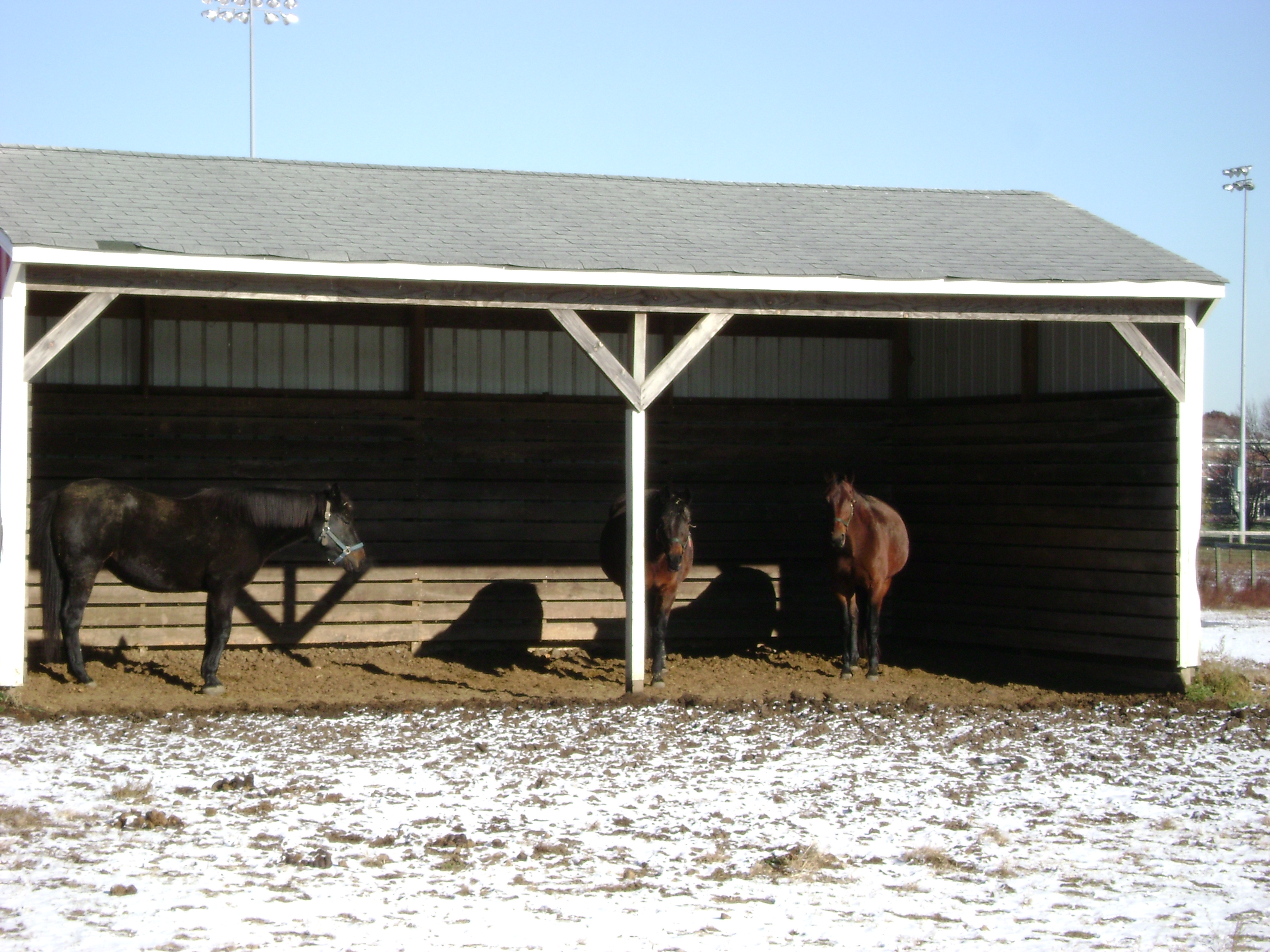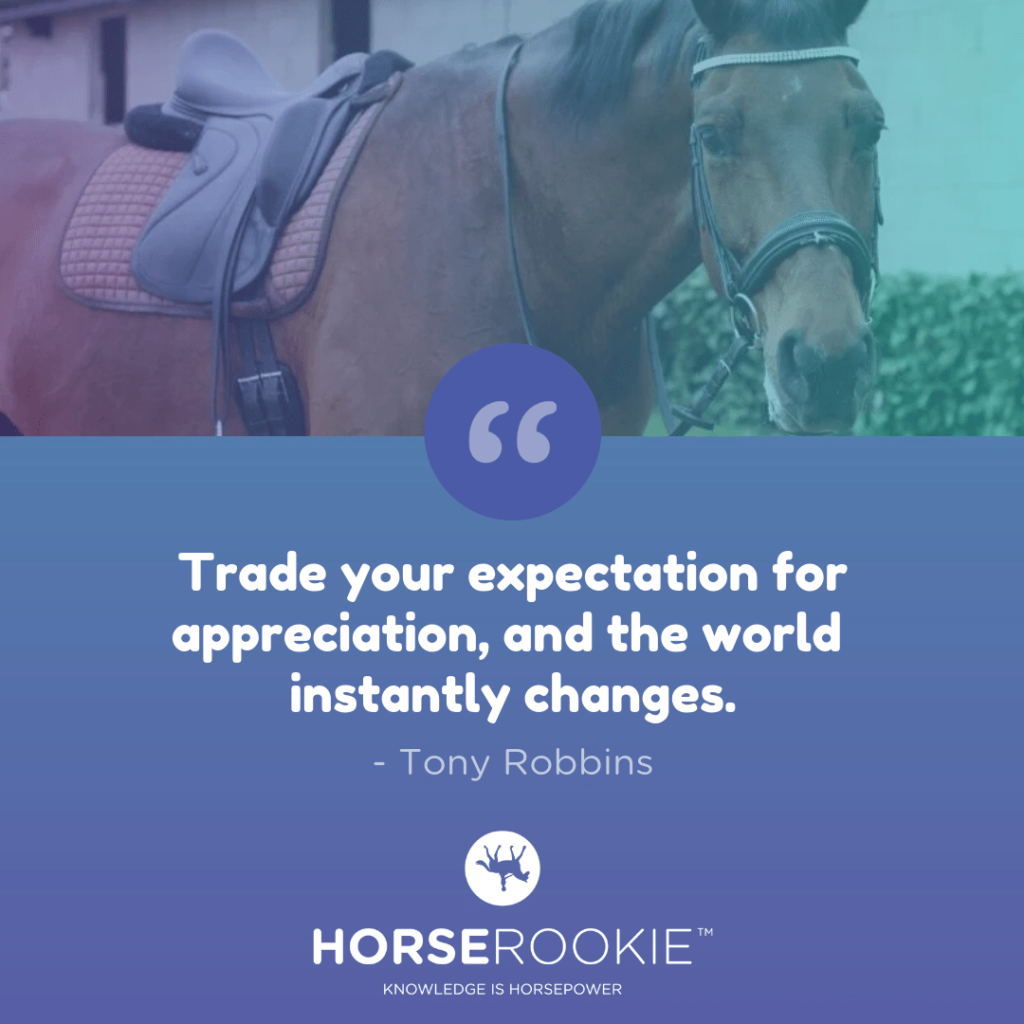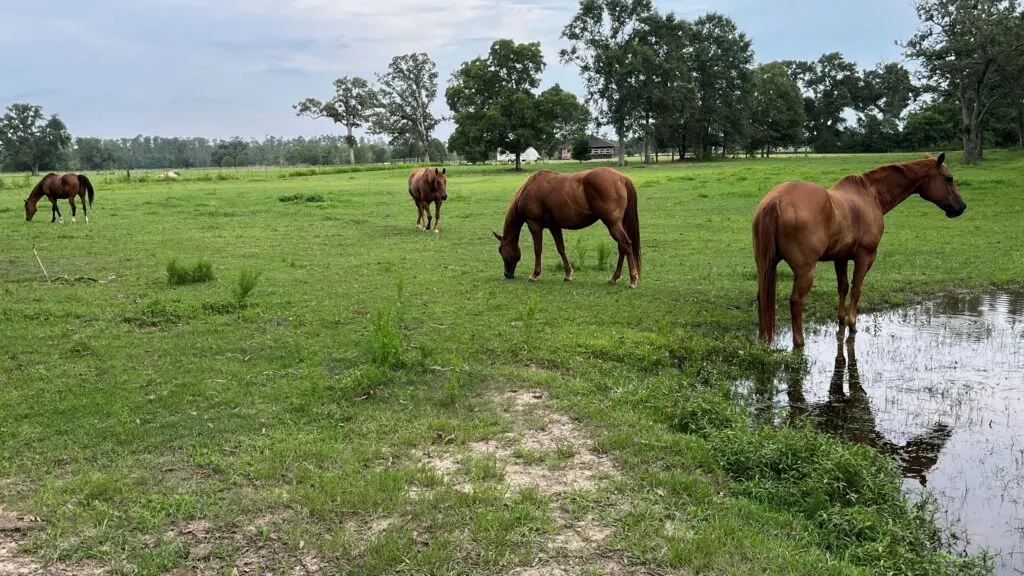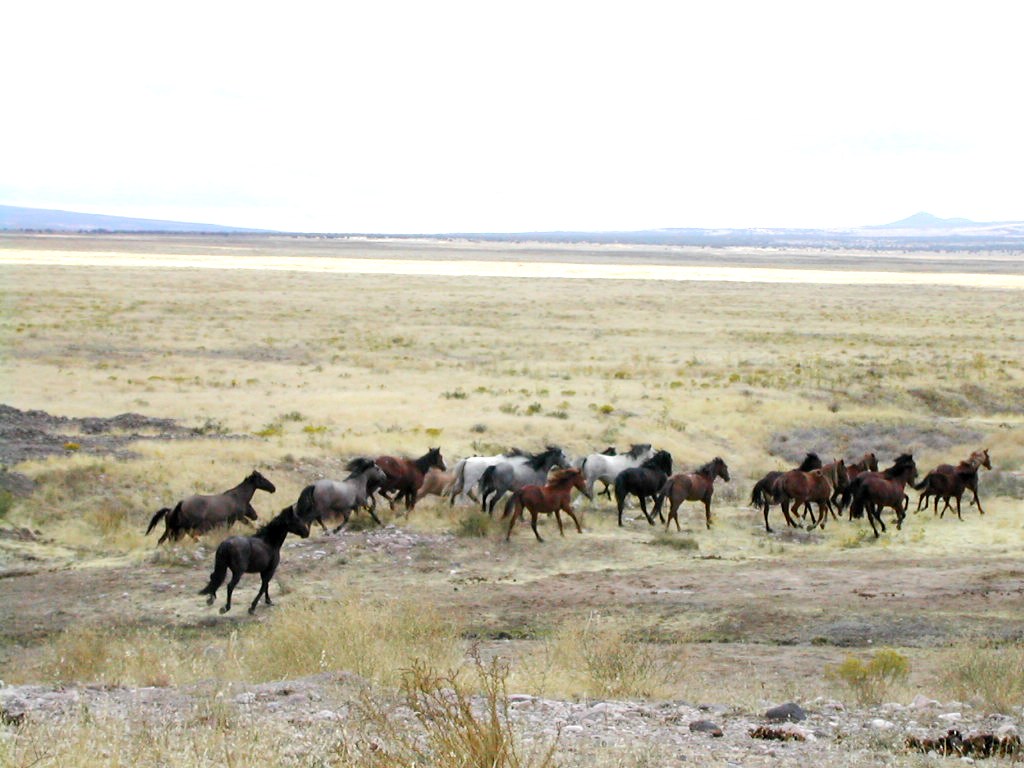Do horses prefer to be in or out. Novedad aquí - Do horses prefer to live in or out
 Horses and ponies generally like to live out on grass for much of the time. This is when they enjoy the freedom to graze, interacting with other horses and generally exhibiting 'normal' horse habits and behaviour.
Horses and ponies generally like to live out on grass for much of the time. This is when they enjoy the freedom to graze, interacting with other horses and generally exhibiting 'normal' horse habits and behaviour.Helpful Hints to RememberDo not stand directly behind the horse.Never wrap the lead around your hand or body.Teach your horse to be patient when being turned loose.Do not allow the lead to drag on the ground.Never stand, lead, or back standing directly in front of the horse.
I say “likely”, because while scientists have yet to devise a way to accurately ask large number of horses how they feel about being ridden, there has been research done that looks at horse preferences as it relates to ridden work.
While some horses seem to enjoy the companionship and the attention that they receive from their riders, others may find the experience to be uncomfortable or even stressful. Ultimately, it is up to the individual horse to decide whether it enjoys being ridden.
Are horses happier living outside
Horses are healthiest and happiest outdoors in their pastures. There are a number of reasons why your horse should be outside as much as possible. Although many horses will clamor to come into a stable during nasty weather, it's important that they live outdoors as much as possible.Do horses need to be turned out every day
Research has shown that horses require at least 8 to 10 hours of turnout per day, on good quality pasture, to achieve the minimum dry matter intake of 1% of their body weight. The recommended dry matter intake for an average horse is 1.25% to 2% of their body weight daily.When a trained horse becomes frustrated with the rider, the signs may be as subtle as a shake of his head or tensing/hollowing of his body, or as blatant as swishing the tail, kicking out or flat out refusing to do what the rider asks.
How Do Horses Like to be Touched Horses prefer to be rubbed and stroked over being tickled or slapped, and they often don't want rubbing on sensitive areas like the flank, girth, belly, nose, ears, and legs.Do horses get jealous of humans
Of 69 horse owners, 79 per cent of them reported that horses felt jealous, although the specific contexts in which this jealousy occurred, or whether a horse or human relationship was being threatened, was not explored.
A horse that is stressed due to a lack of companionship may show behaviours that include running around a lot (usually up and down the fence line that prevents the horse from reaching other horses) and whinnying. They may also lose weight.
A domestic horse needs access to shade and shelter. A free living (wild or feral horse) can seek these out when necessary but a domestic horse can only make the best of what is provided for them. So it is important that you provide these facilities for your horse/s.Research has shown that horses require at least 8 to 10 hours of turnout per day, on good quality pasture, to achieve the minimum dry matter intake of 1% of their body weight. The recommended dry matter intake for an average horse is 1.25% to 2% of their body weight daily.
As a horse begins to age, their requirements change. The strenuous rides and exercise routine that were once easy to accomplish become more of a challenge. Each horse is unique in the rate at which they age. However, it's common to stop regularly riding your horse when they are between 20 to 25 years old.What is labelled disrespect usually involves things the horse does that the person does not like: crowding space, ignoring cues, barging over the person, standing too close, biting, kicking, pinning ears, rubbing his head on the person, not standing still, turning hindquarters towards the person, spooking and not ...
How do you tell if a horse respects you
If a horse is grazing in a field and they come towards you when you are around you can be sure they like you. Horses that follow your movements in their presence show they are focused on and give you 100% of their attention. If your horse follows you around when they see you, they consider you as a friend.Never look a horse in the eye You're only a predator if you intend to eat what you're looking at. Horses can easily tell the difference between a predator looking to eat and predator looking in curiosity and wonder. Horses do, however, struggle to understand the intention of a human who hides his eyes.ten years Horses also understand words better than expected, according to the research, and possess "excellent memories," allowing horses to not only recall their human friends after periods of separation, but also to remember complex, problem-solving strategies for ten years or more.14 Ways to Show Your Horse You Love HimRide somewhere new.Turn him out.Give him more forage.How warm is heLet him indulge in any sunshine.Chop some carrots up in his feed.Let him search.Give him hay in different ways.It really depends. They may show signs of sadness, much like when they leave a favorite herd mate. On the other hand, if you weren't that close they will likely have no emotional response to being sold. If they do appear sad, it's only time before they get comfortable in their new home and let go of those feelings.
What is the best companion for a horse
Other equines aren't the only possible companions for horses, although donkeys, minis, and ponies are quite common. You can find horses being comforted by all sorts of species, including dogs, cats, cows, sheep, goats, and camelids, like alpacas and llamas.Their instincts tell them that there are predators lurking around every corner and therefore they still feel much safer in a herd than alone. Horses that live alone do not get to benefit from the shared responsibilities of herd life and all the benefits of social behaviour.
Dr. O'Brien is part of The Spruce Pets' veterinary review board. Horses are healthiest and happiest outdoors in their pastures. There are a number of reasons why your horse should be outside as much as possible.
Horses need daily care regardless of the weather, schedules, or holidays. Keeping a horse on your own property is a 365 day a year job.For a horse and rider who require a moderate level of fitness, The horse should be ridden four days a week. At least two of the days should include a more intense workout while the other days could result in a slightly easier and less strenuous ride. Let's Do The Math: On Average, How Long Can You Ride a Horse in a Day Typically, a healthy horse will comfortably walk for about eight hours.
Let's Do The Math: On Average, How Long Can You Ride a Horse in a Day Typically, a healthy horse will comfortably walk for about eight hours.
Similar articles
- ¿Cuáles son las 5 potencias del mundo. Novedad aquí - ¿Cómo se llaman las 5 potencias mundiales
- ¿Quién es el goleador de la liga mexicana. Novedad aquí - ¿Quién es el goleador de la Liga MX 2022
- ¿Quién es el mejor cantante de flamenco actualmente. Novedad aquí - ¿Quién es el mejor cantaor de flamenco en la actualidad
- ¿Cuánto cuesta el Club Atlético San Luis. Novedad aquí - ¿Cuánto vale el Atlético San Luis
- ¿Cuándo puedo comprobar Euromillones. Novedad aquí - ¿Cómo saber si te ha tocado algo en el Euromillón
- ¿Qué es CP en Correos España. Novedad aquí - ¿Qué es CP en envío
- ¿Qué necesita Boca para salir campeon. Novedad aquí - ¿Qué necesita Boca para salir campeón
- ¿Por qué canal pasan las Eliminatorias Qatar 2022. Novedad aquí - ¿Qué canal van a transmitir las eliminatorias Qatar 2022
- ¿Qué significa la jota en las cartas. Novedad aquí - ¿Qué significa la J en una carta
- ¿Cómo era el fútbol para China. Novedad aquí - ¿Cómo era el fútbol para los chinos
- ¿Cuántos campeonatos de Concacaf tiene el Monterrey. Novedad aquí - ¿Cuántas copas Concacaf tiene el Monterrey
- ¿Qué lugar ocupa México en obesidad 2022. Novedad aquí - ¿Qué lugar ocupa México en la obesidad 2022
- ¿Cuál es la escuela más grande del IPN. Novedad aquí - ¿Cuál es mejor UNAM o poli
- ¿Por qué Barcelona no puede inscribir jugadores. Novedad aquí - ¿Por qué no puede inscribir jugadores el Barcelona
- ¿Cómo liberar un saldo retenido en BBVA. Novedad aquí - ¿Cuánto dura el dinero retenido en BBVA
Popular articles
- ¿Cómo ver partidos de James Rodríguez. Novedad aquí - ¿Dónde se puede ver los partidos de James Rodríguez
- ¿Cómo ver Alianza Lima vs River Plate. Novedad aquí - ¿Cómo ver River vs Alianza Lima en vivo
- ¿Que se infiltro Nadal. Novedad aquí - ¿Qué trastorno tiene Nadal
- ¿Dónde están pasando el juego de Rayados. Novedad aquí - ¿Dónde puedo ver el partido Monterrey Atlas
- ¿Quién tiene más hinchada América o Nacional. Novedad aquí - ¿Quién tiene más hinchada el América o el Nacional
- ¿Cuánto gana un conductor de noticias en Televisa. Novedad aquí - ¿Cuánto gana un conductor de televisión mexicana
- ¿Cuál disco es más rápido. Novedad aquí - ¿Qué es más rápido un disco SSD o HDD
- ¿Dónde se puede ver el sorteo de la Champions. Novedad aquí - ¿Dónde ver el sorteo de la Champions 2022 España
- ¿Cuándo es el proximo bote de 100 millones de Euromillones. Novedad aquí - ¿Cuándo será el próximo bote especial de Euromillones
- ¿Cuánto te quitan en un concurso. Novedad aquí - ¿Cuánto te quita Hacienda de un premio de un concurso
- ¿Cuántas horas al día entrena Lionel Messi. Novedad aquí - ¿Cuánto tiempo entrena Lionel Messi
- ¿Cuál es la mayor goleada del América al Cruz Azul. Novedad aquí - ¿Quién a ganado más veces América o Cruz Azul
- ¿Qué pasa con Andy en la serie de Chucky. Novedad aquí - ¿Cómo Muere Andy en Chucky
- ¿Cuánto tiempo dura el deficit de atencion. Novedad aquí - ¿Cuándo desaparece el déficit de atención
- ¿Cómo se llama el marcador para Pintarron. Novedad aquí - ¿Cómo se llaman los marcadores para pizarrón